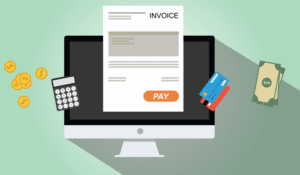Trumps Civil Fraud Trial Penalty Was Made Possible by This New York Law The New York Times

When building your accounting system, ensure your system includes features for tax compliance so you can track expenses, calculate tax and prepare filings. You can also use the tools within your accounting software or standalone applications to forecast revenue and monitor cash flow. A startup accountant can help you organize these obligations, so you can better plan for future growth. Startups often operate with limited resources and face tight budgets. Accounting helps in tracking costs and controlling expenses effectively. By maintaining a record of all expenses, businesses can identify areas of unnecessary spending and implement cost-cutting measures.
- Want a more comprehensive look at how to set up the accounting and finances for your startup?
- Our account management team is staffed by CPAs and accountants who have, on average, 11 years of experience.
- You can use the credit card to pay for things like inventory or any other business expenses.
- Overall, ratios can be a valuable tool for startups when it comes to understanding and managing their finances.
- It is critical for your startup’s financial health and ultimate success.
- Small businesses tend to employ the cash method of accounting more frequently since it is easier.
- We’ll cover the various services startups need from accountants and the things accountants look out for while doing their work.
A certified accountant will be able to manage your chart of accounts with accrual accounting to position your business in the best light for those investing or lending you money. In Saas, income is generated from subscriptions rather than https://www.bookstime.com/ one-off sales. Because of this, there are deferred revenue components that you have to include in your financial reports to boost your profile with investors or banks. This requires accrual accounting rather than the simple cash-basis.
Accounting for Startups — A Comprehensive Guide
Depending on your business and circumstances, you might prefer one method for filing income taxes over another. You may want to consider this when deciding what type of entity to form. You will also want to consult an attorney to consider legal implications of each entity type, since tax implications aren’t the only things you should consider when choosing a business type. You will be doing yourself a favor if you think about all of these things before your company grows and becomes more complicated. If you have a business, you will want to create separate accounts for banking, credit cards, and similar needs. Keep these things separate to organize your accounting and protect yourself.
Aim for a line of credit or payment terms like net-30 or net-60, to establish a positive business credit history. If you’re new to the business world, accountant for startups building credit might seem complicated. Keep a record of the names, addresses, and how much you are spending on each independent contractor.
